IsraelMap
July Very little has changed since my last visit here (including my desire to return). Perhaps only that the country has become a bit more civilized. For this reason, my account will focus primarily on the things I didn’t see last time. A post box. 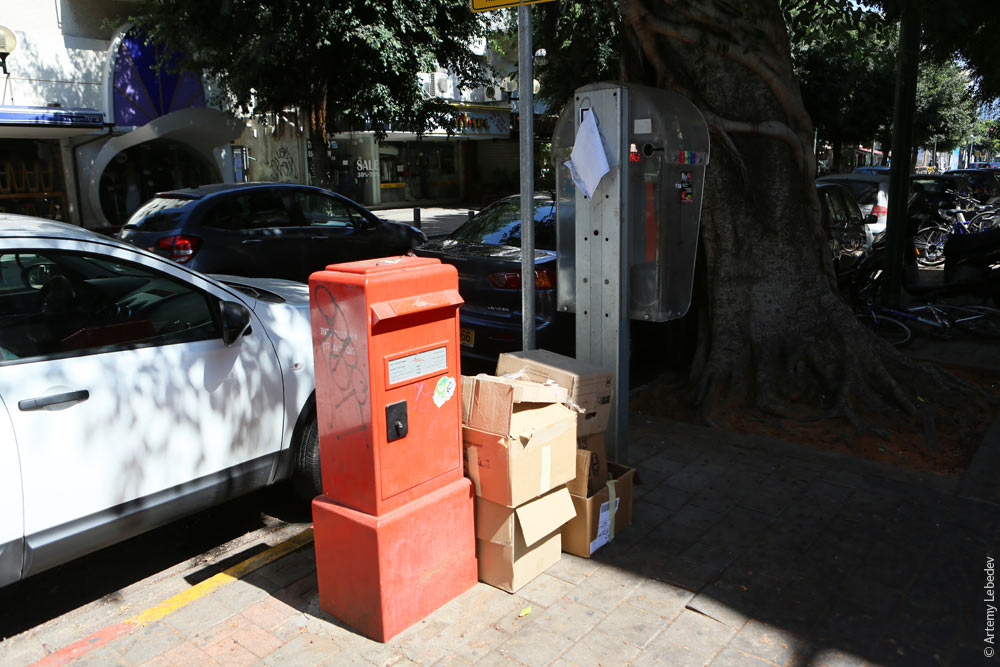 Every other car has two antennas on its roof. One, as expected, is for the radio. The second is the antenna that comes with a hands-free kit. Why the antenna already built into every phone is insufficient is unclear. But since it came with the kit, might as well attach it—can’t let the goods go to waste. 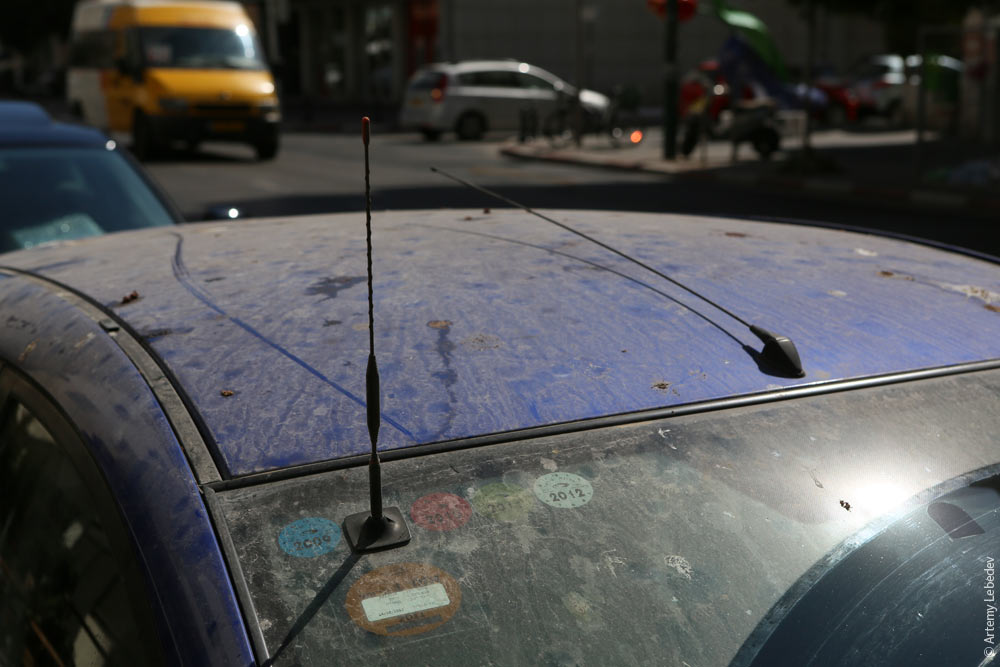 A gas station sign. 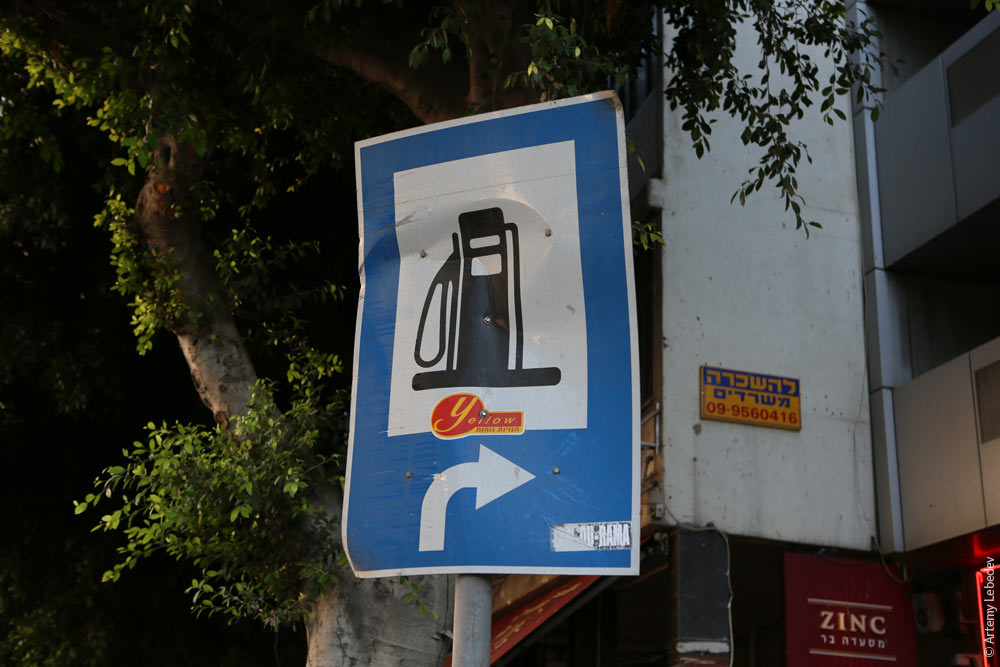 Every café has UV bug zappers. 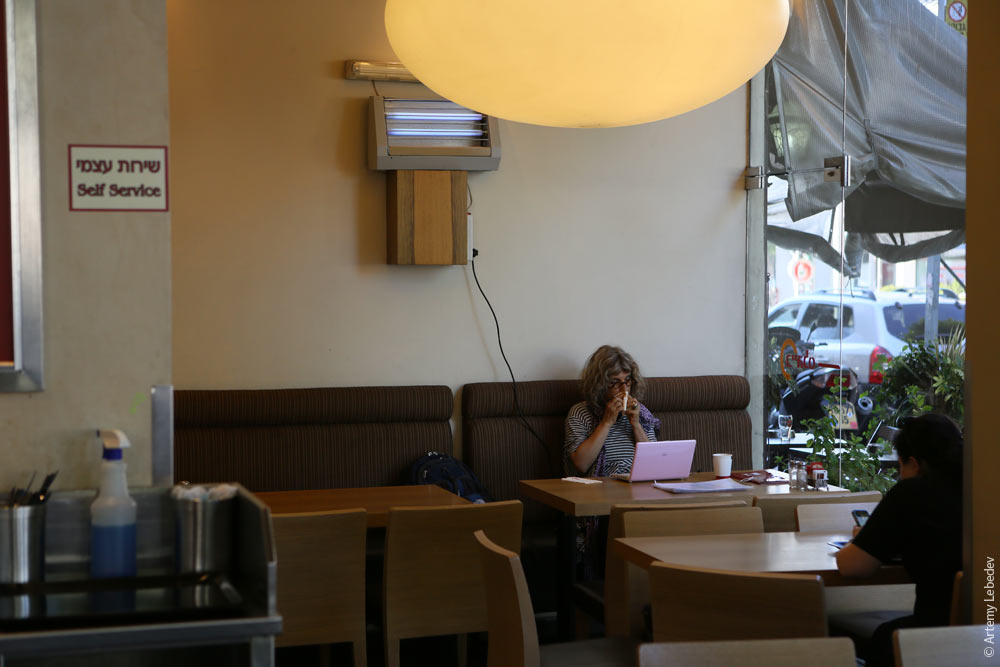 Every self-respecting building has a Shabbat elevator. Since those who are particularly religious are prohibited from doing any work on Saturdays—and summoning an elevator is considered work—one of the elevators goes into religious mode every Saturday, stopping and opening its doors on every floor as it goes up and down. 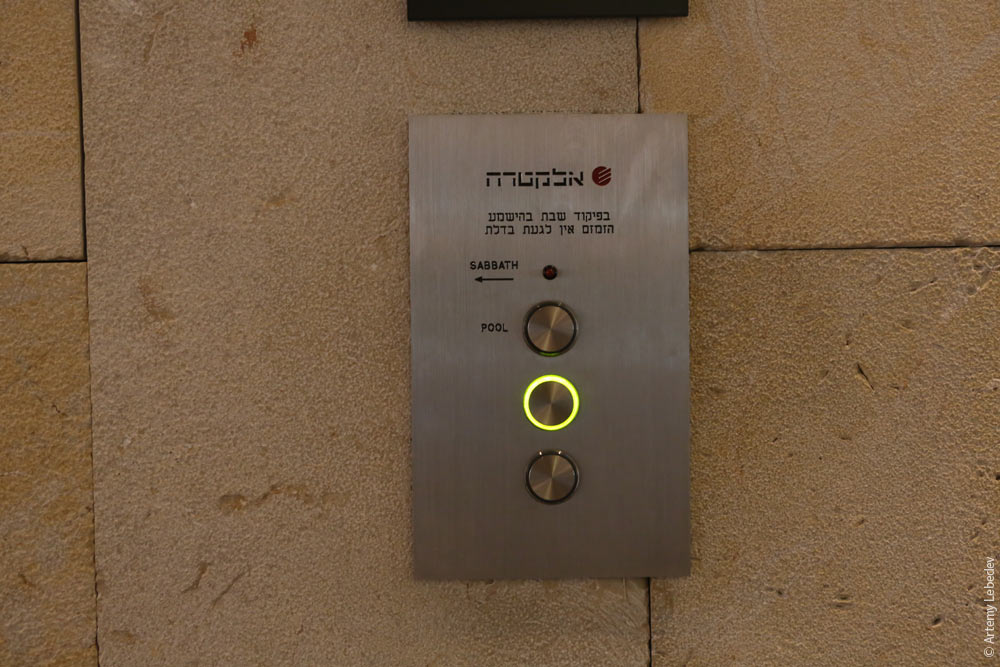 The list of ways to cheat god isn’t limited to the Shabbat elevator alone. Electrical devices can’t be used on Shabbat, but they can be programmed on a weekday, so that on Saturday the TV turns itself on and off. Cooking food is prohibited, but cooling or heating it isn’t (because that’s not considered cooking). Arabs, who have no such restrictions, end up working their butts off on Saturdays. Because a Jew can’t clean a hotel room on a Saturday, for instance. Tel AvivMapEvery utility pole in Tel Aviv has a unique contraption attached to it which prevents climbers from getting up to the high voltage lines. The reason it exists is that the lattice poles are very easy to climb. Although it’s still a complete mystery as to why there are so many contenders trying to get up to the power lines in the first place. 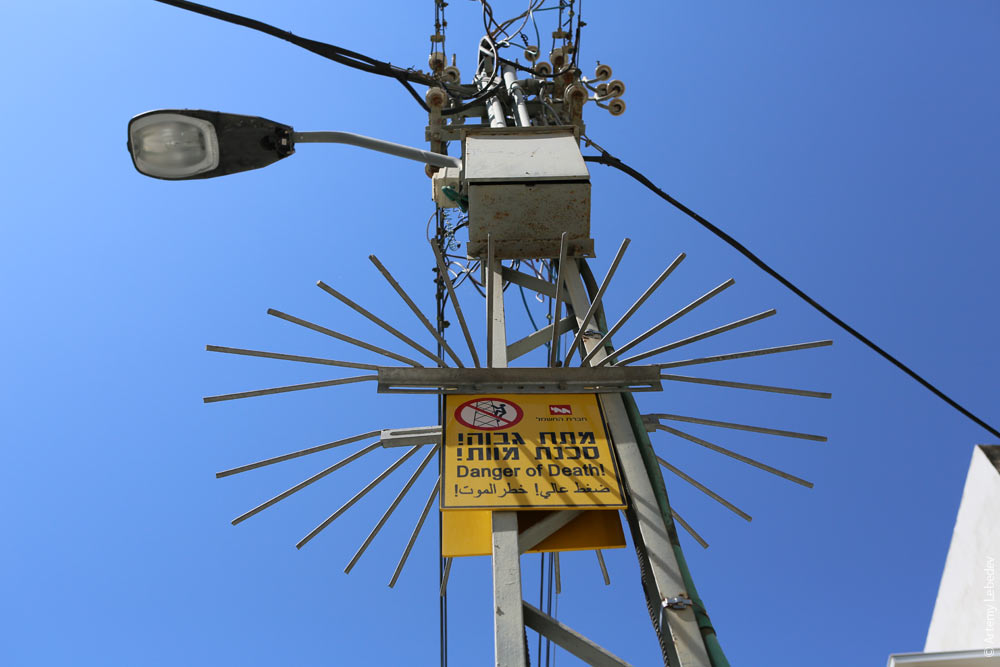 As a result, the entire city is covered with these rebar umbrellas. 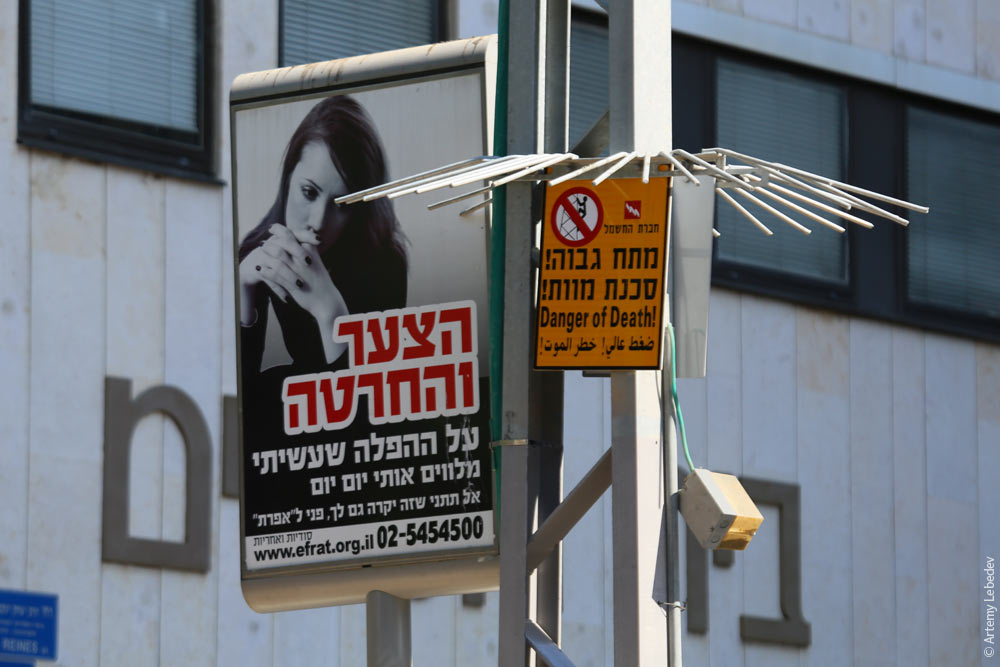 Every car has parking and other permit stickers on its windshield. 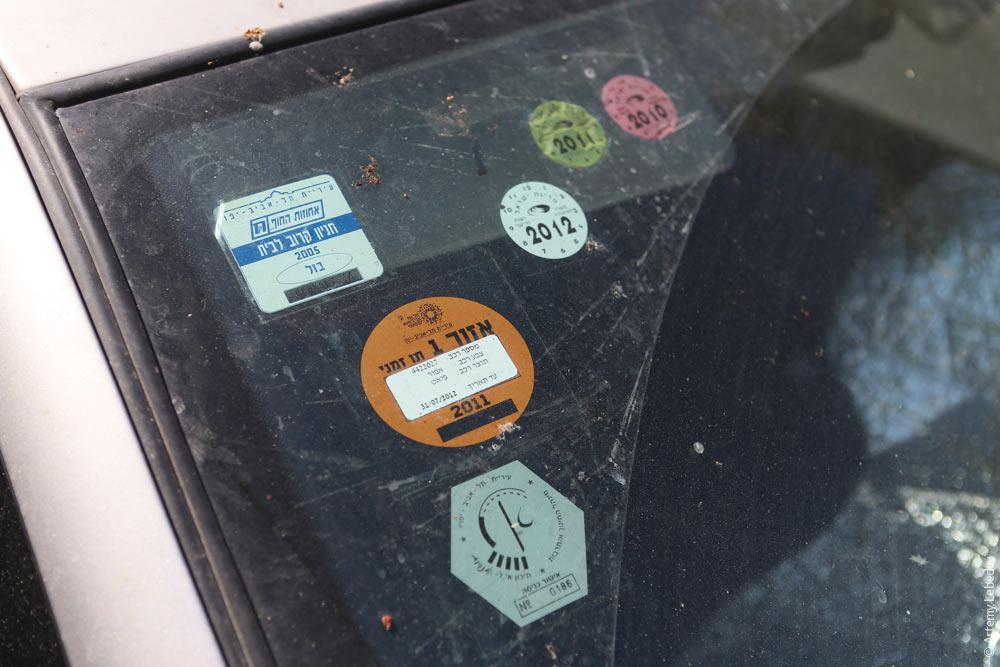 Street signs. 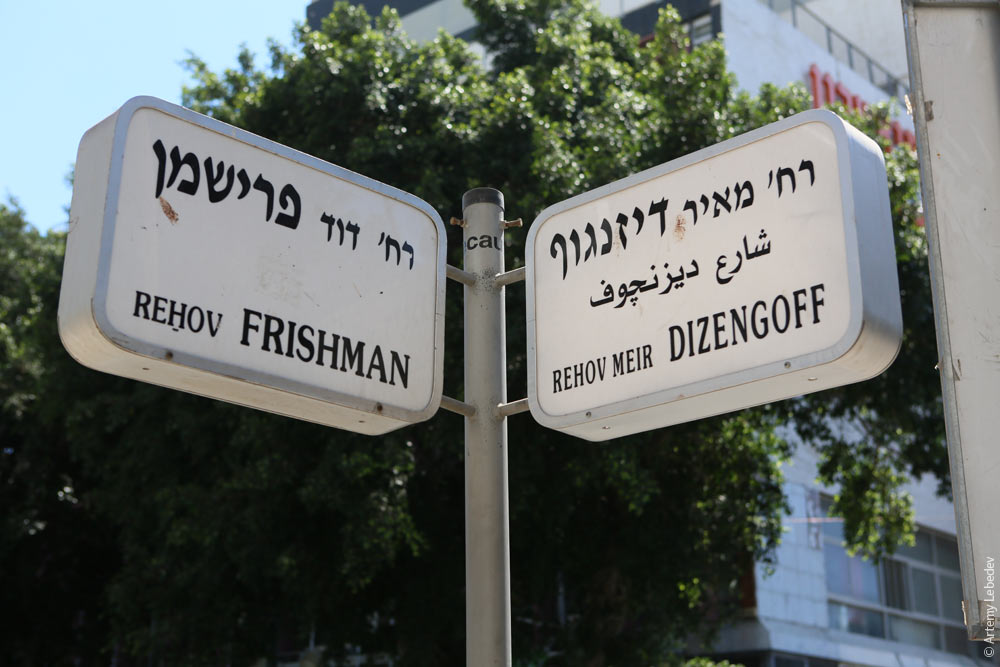 A recycling receptacle for plastic bottles. 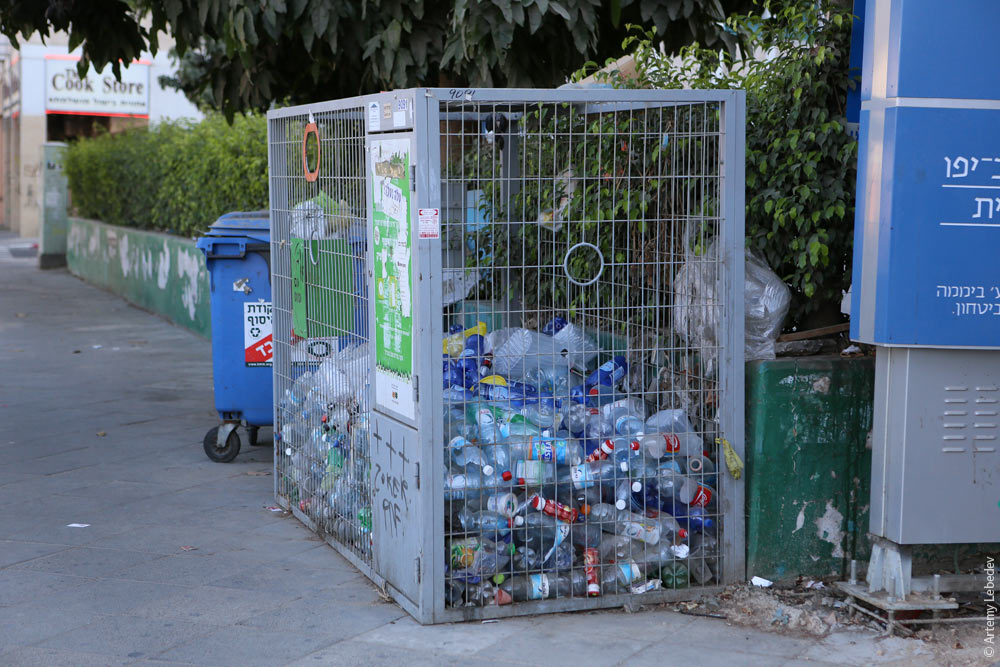 Although Israel does look like a foreign country, there’s one detail it shares with Russia: trash bags are tucked in on the outside, which results in any trash can looking hideous. In the West, the main idea behind every trash can is to cover up the bag with decorative elements. 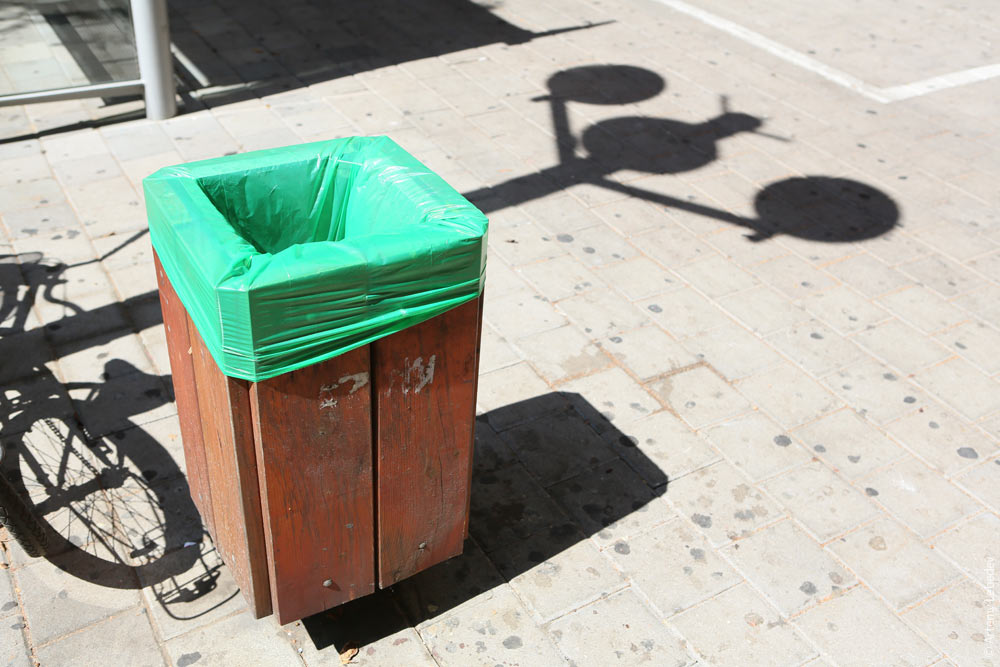 On the other hand, Israel has already arrived at the realization that dumpsters don’t make for the prettiest sight and should therefore be concealed behind something. 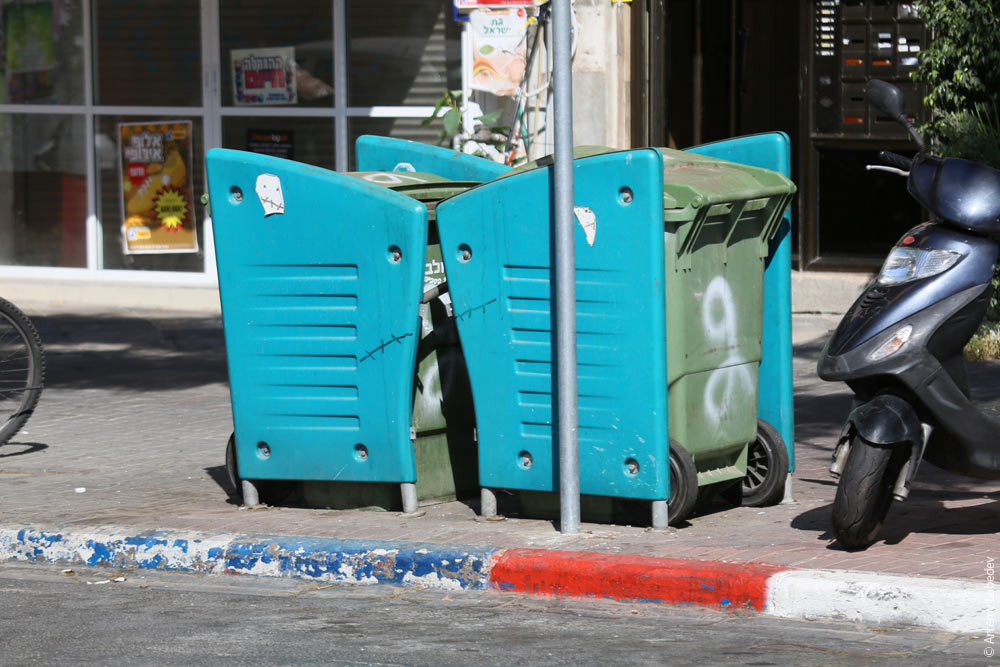 A stop sign under a traffic light. 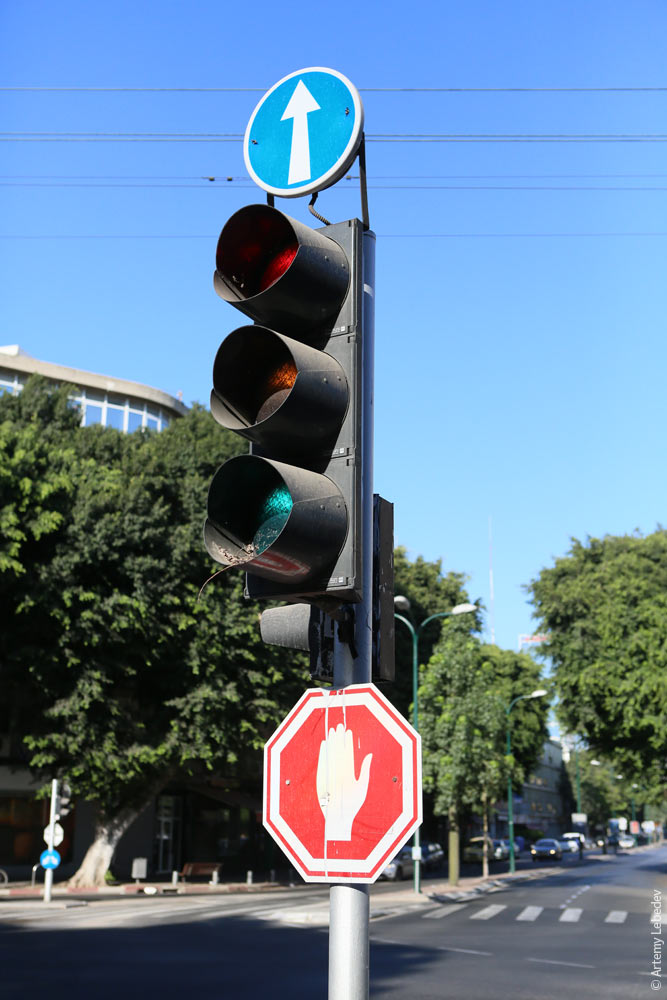 The same sign is shamelessly used to advertise sales in every second shop window. 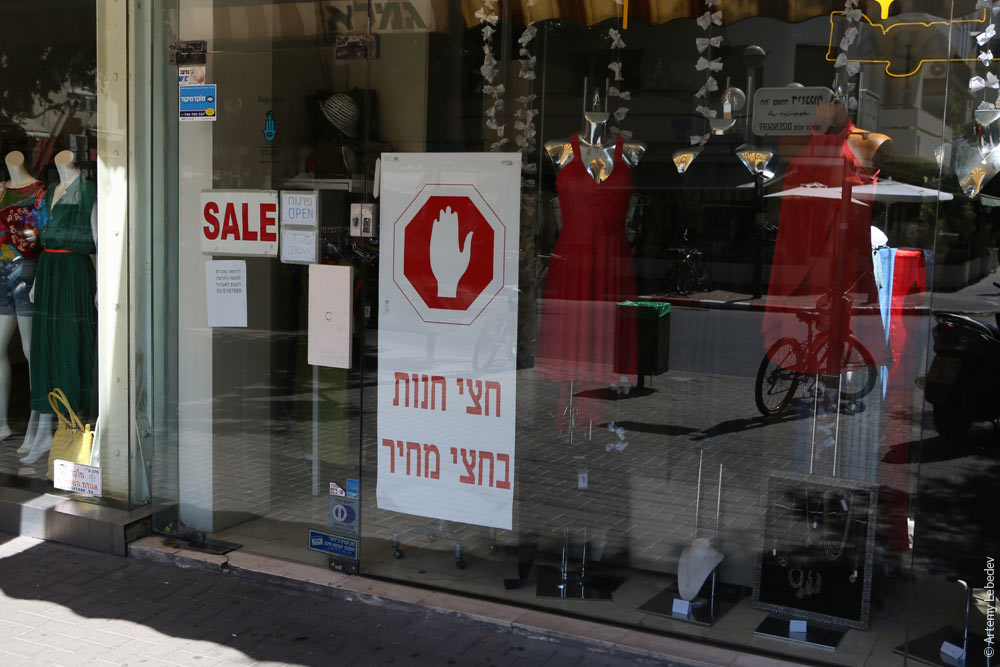 Street art. 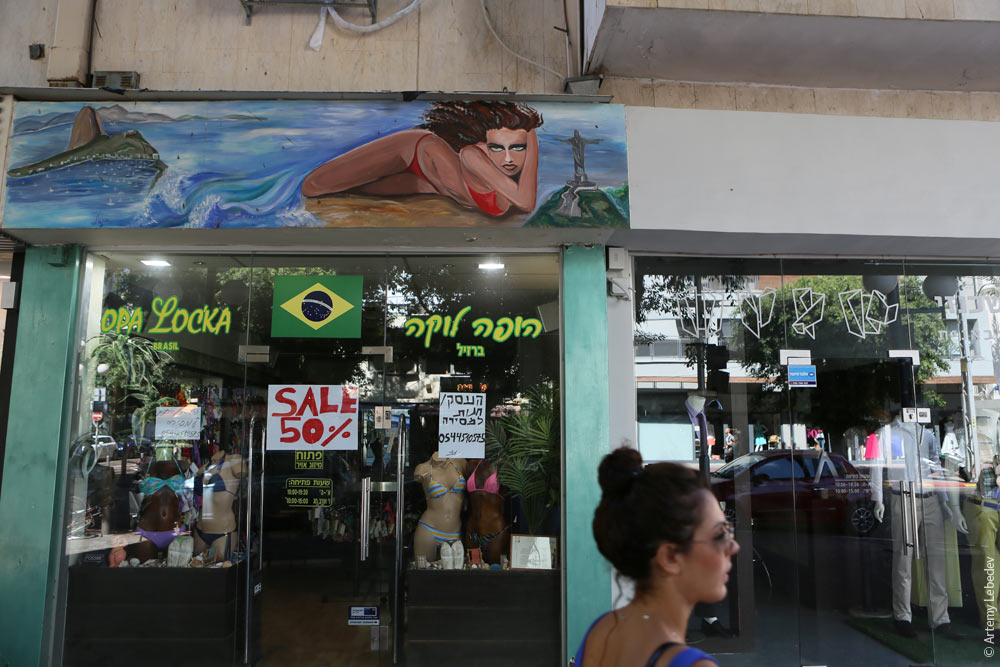 Last time, I really regretted not making it to the UNESCO-protected White City, a neighborhood with thousands of buildings constructed in the first third of the 20th century—essentially a living monument of Art Deco architecture. As it turns out, it’s the least interesting world heritage site one could possibly imagine. Run-down, plain, characterless buildings covered with air conditioners are being passed off as a world-class masterpiece. No shame. The view of Tel Aviv from the Google office is a thousand times more interesting than the White City. Let the reader imagine for himself just how uninteresting the White City is. 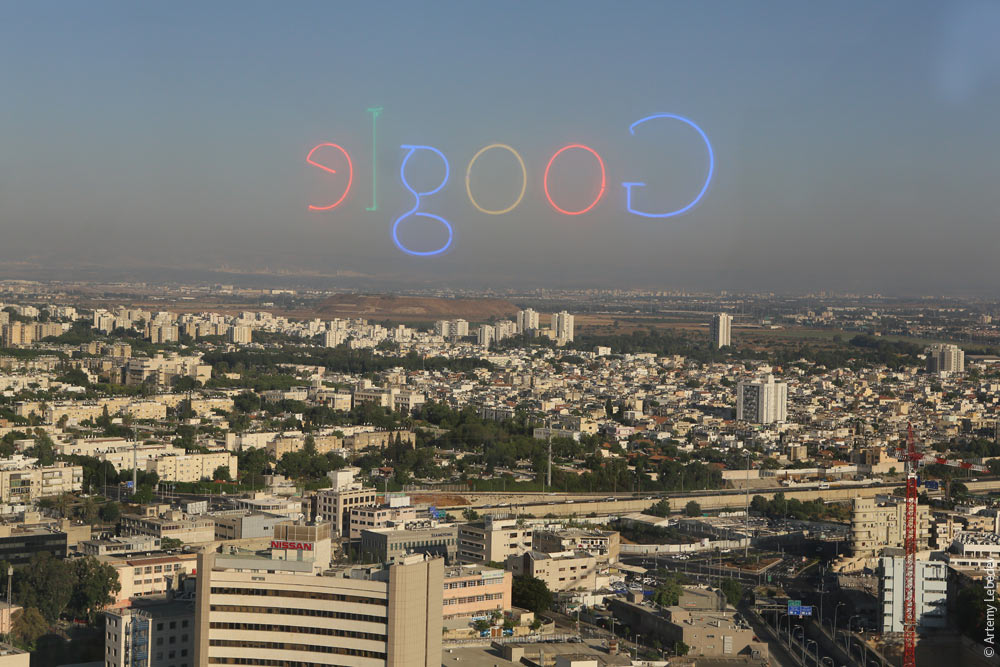 JerusalemMapJerusalem is much more interesting than Tel Aviv (although Tel Aviv is the one that has all the normal restaurants, hotels and offices). Underground garbage receptacles (like in Serbia and the rest of Europe). 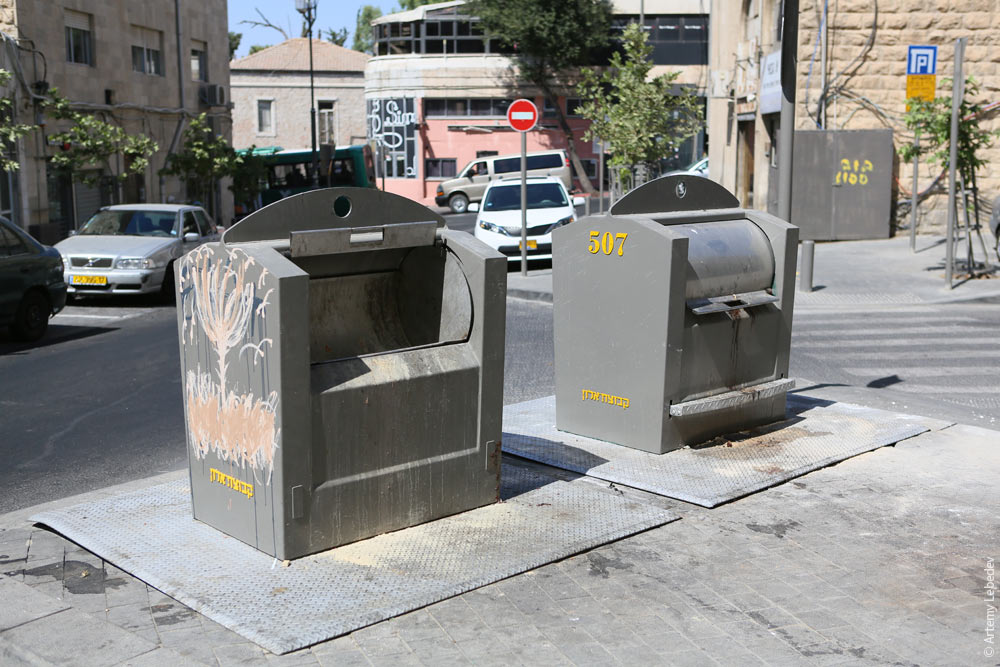 A plastic bottle recycling container (like in Kiev) with an exaggerated metaphor about the effect of recycling on pretty green leaves. 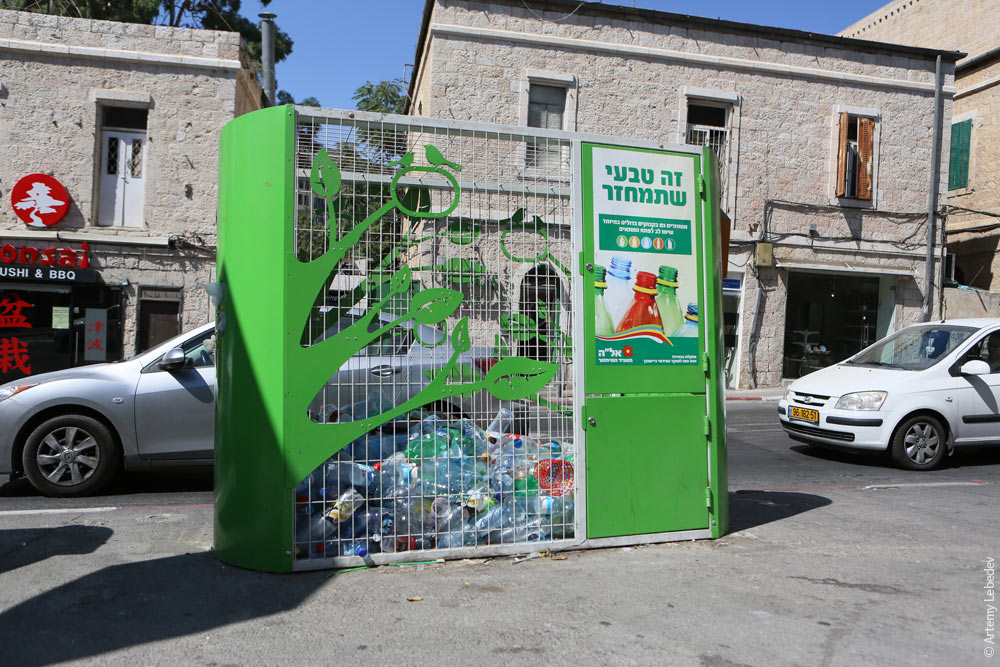 A cardboard recycling container. This is the first time I see one like this. 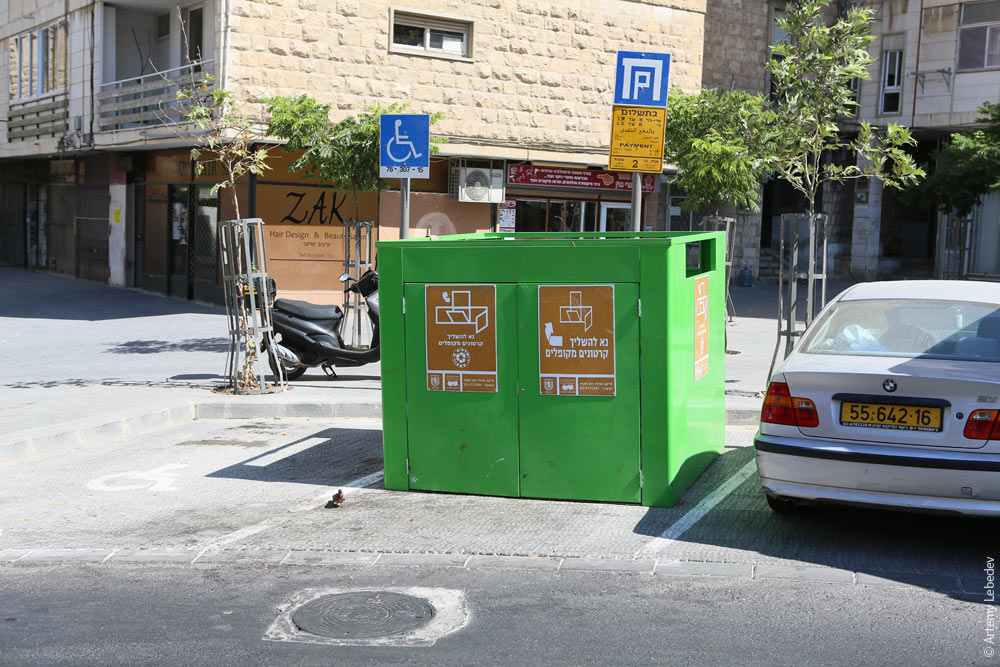 A paper recycling container. 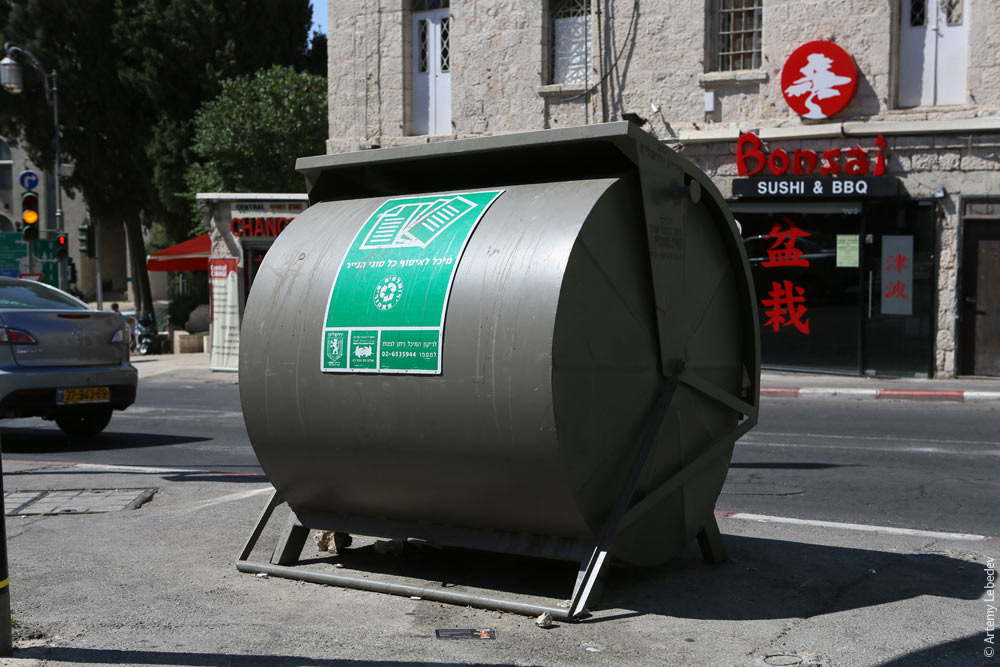 A municipal trash can with the city’s emblem, which resembles the Peugeot logo. 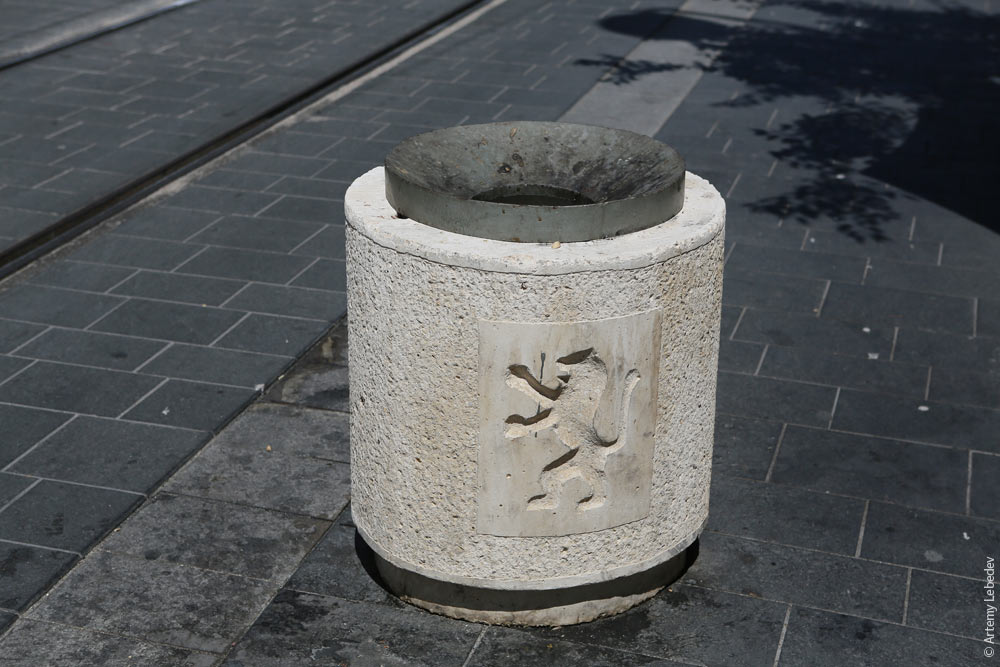 The Jerusalem fire hydrant looks like a Star Wars character. 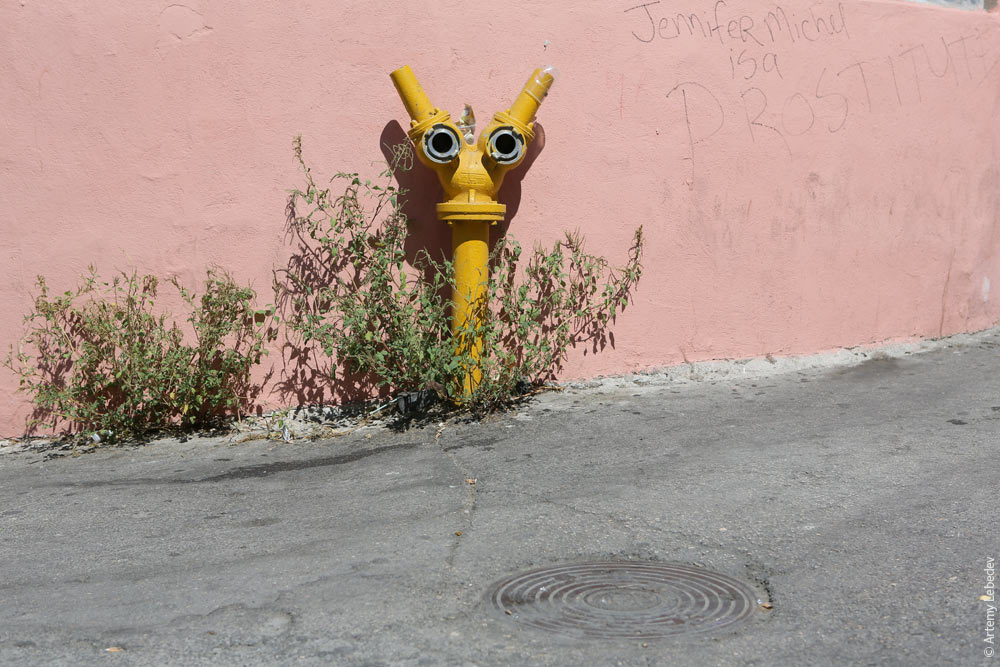 A bus stop. 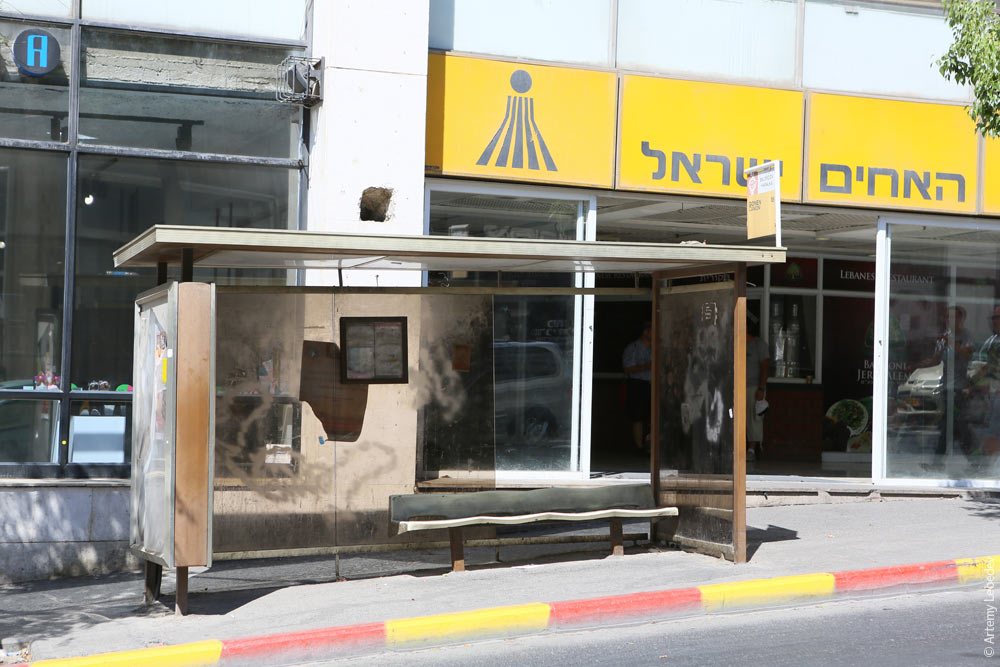 Double five-section trams are the last thing one expects to see here. 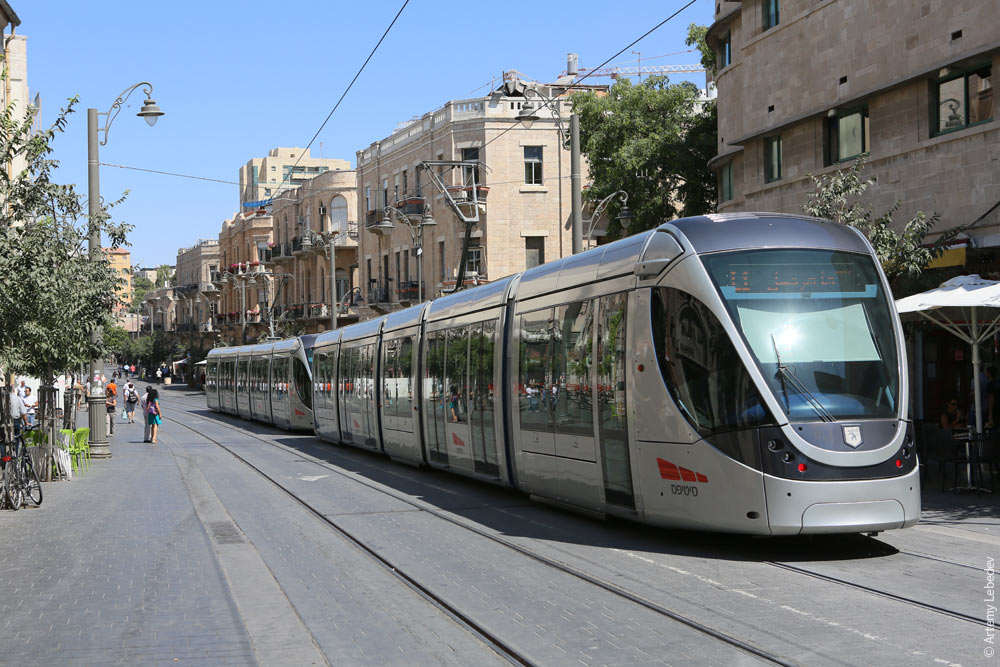 A post box of the British pillar variety. 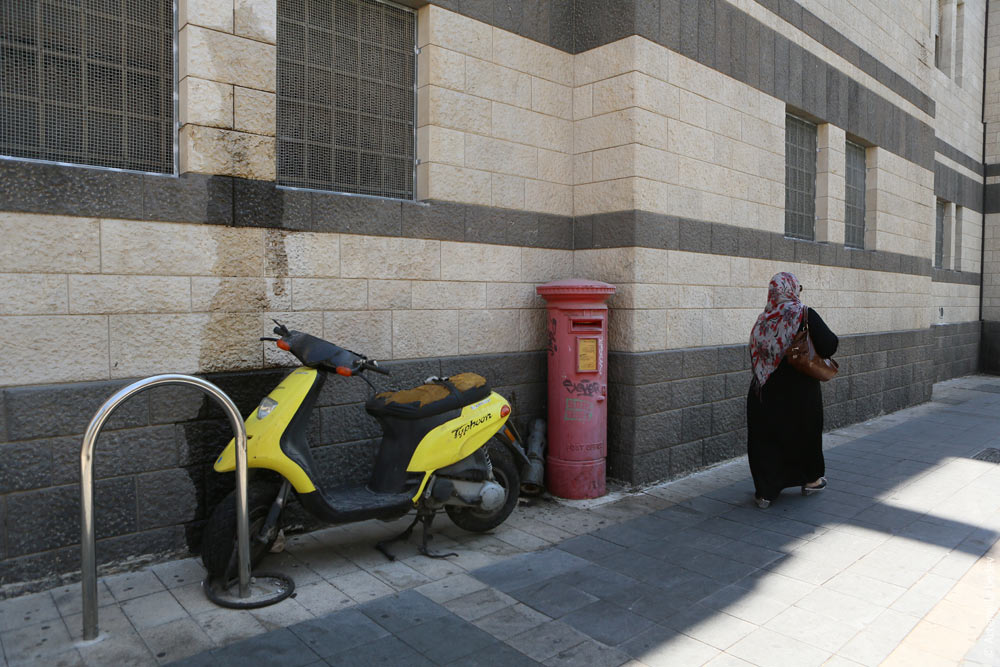 The largest working post box in the world (the largest post box in general is in the Faroes as it turns out, but it doesn’t accept correspondence). 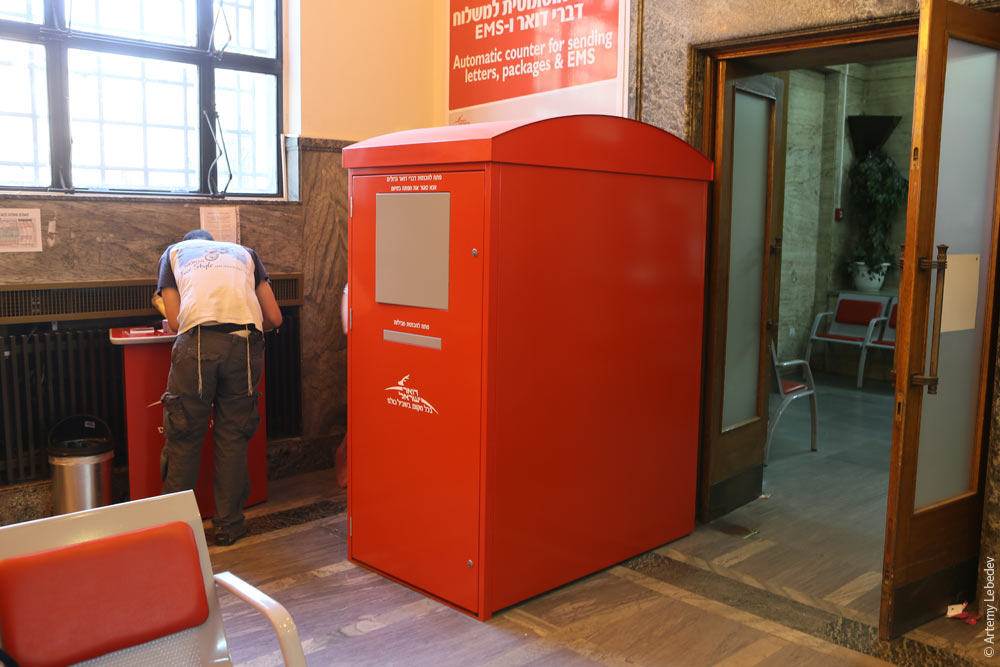 The postal worker pours some water from a kettle into a stamp-wetting pad as he keeps repeating, “Money means nothing. You’re wealthy if you’re healthy.” He then not only proceeds to sell me more stamps than I need, but also talks me into buying some kind of charity stamps to support some children somewhere. 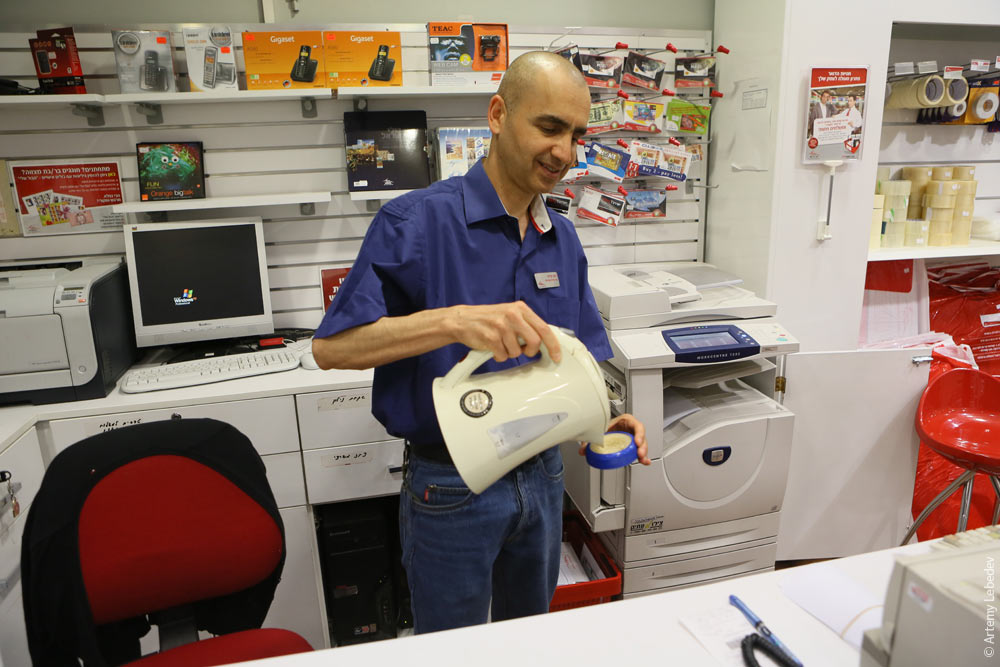 Lottery ticket kiosks are on every corner. 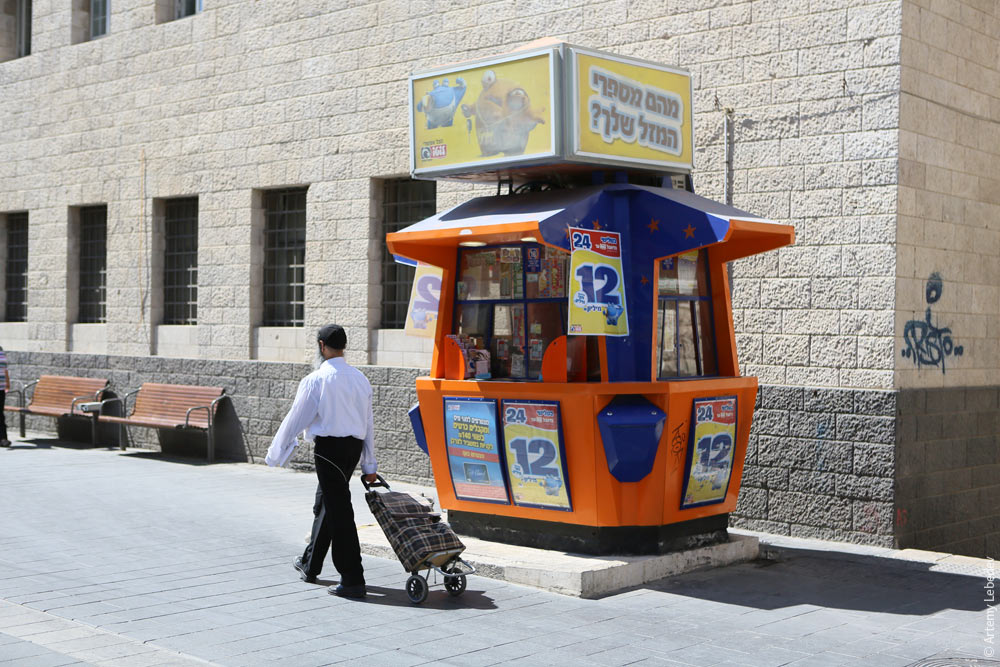 * * * Israel remains true to itself. In order to fly out of the country, travelers must undergo one of the most humiliating interrogation procedures on the face of the planet. The assaults on personal dignity which I experienced in Switzerland (having all my belongings rifled though), Algeria (going through security checks five times) and Mariehamn (having the entire contents of my toiletry bag examined by hand) all pale in comparison. “Why did you come to Israel? What did you do here? Do you have relatives here? What about friends? What are their names?” Those who live here always defend such procedures, convinced that “our boys and girls are ensuring our safety.” Yet no one ever thinks about how rudely and unceremoniously these boys and girls treat travelers who are already trying to leave and, as they’re being frisked and questioned, swear to themselves never to return. After this, every item resembling an electronic device is subjected to a shamanic ritual: it’s rubbed with a giant brush, placed inside some apparatus, and then returned to its owner. Or not returned. And this procedure is the most pleasant thing travelers can hope to experience here. 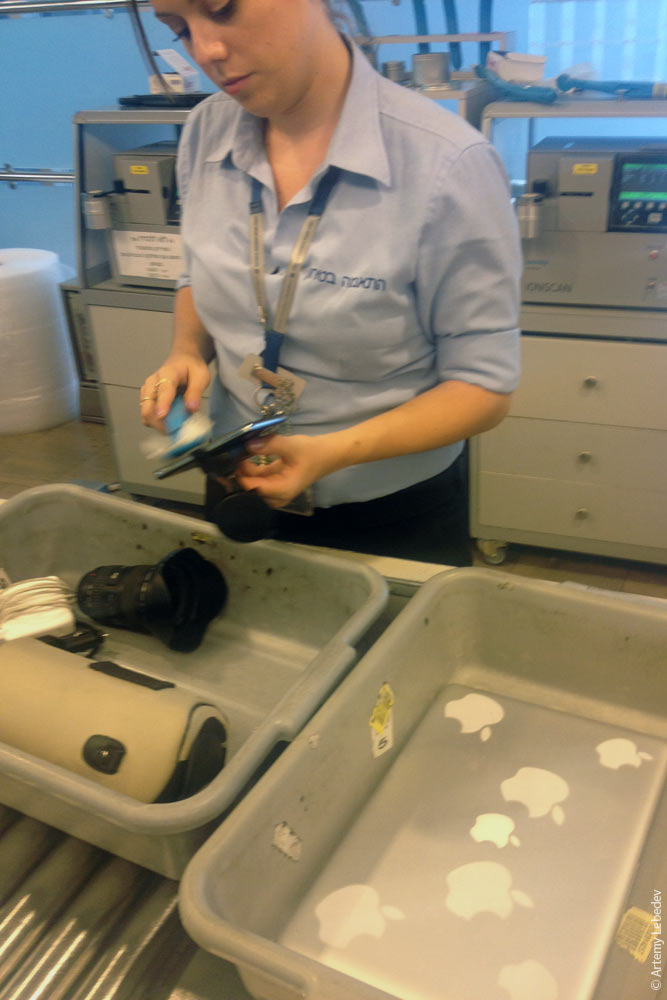 |